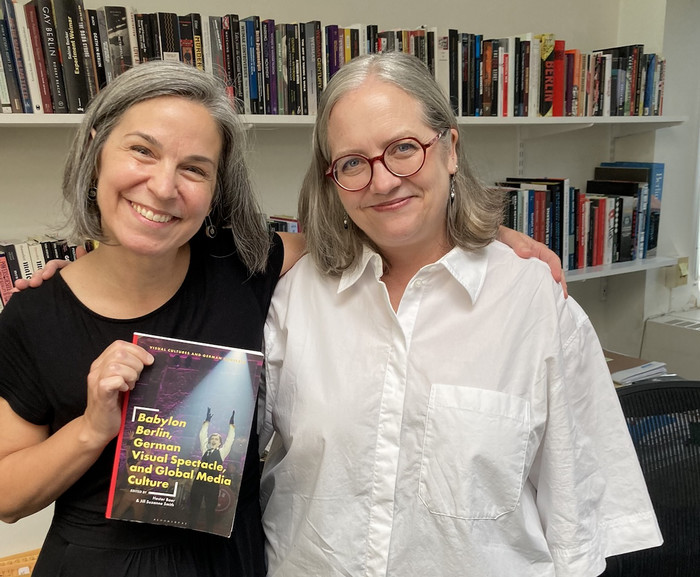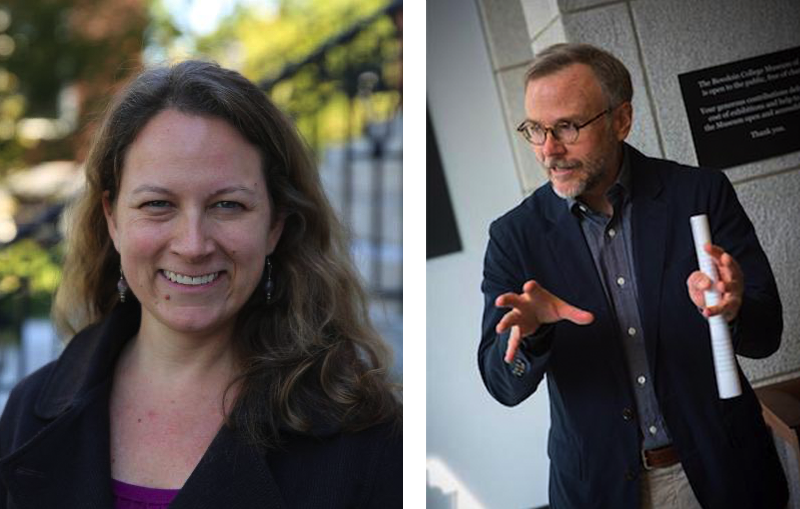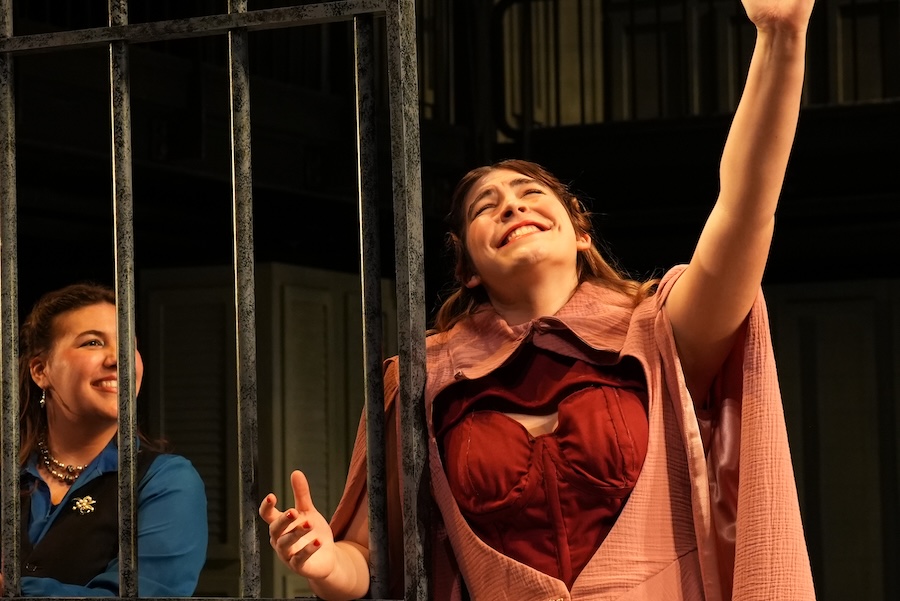Writer, Feminist Susan Faludi Discusses New Book, ‘In the Darkroom,’ at Bowdoin
By Savannah Horton '17
Currently a research associate in Bowdoin’s Gender, Sexuality, and Women’s Studies Program, Faludi previously was a Tallman Scholar at Bowdoin, teaching courses such as Writing Women and Is Feminism a Dysfunctional Family?
In the Darkroom chronicles the story of Faludi and her father. One day Faludi received an email from her father in Hungary with the subject line “Changes.” Without telling anyone, Faludi’s father, at 76 years old, underwent sex reassignment surgery, transitioning from Steven to Stefánie. In the Darkroom follows Faludi’s reconnection with her father after 25 years of estrangement. Faludi’s book is not just a personal recounting of events, but also an analysis of the “treacherous landscape of identity” and its larger implications.
At her book reading and talk, Faludi discussed the relevance of identity to politics. She described her Hungarian Jewish family’s experiences during the Holocaust, as well as the current political climates of Hungary and the US. “What is identity?” said Faludi. “Do we choose it?” For Stefánie, identity has been fluid and multiple. Faludi sets Stefánie’s personal identity quest against the background of Hungary’s politic crisis—the rise of a new nationalist government and its declaration of a “Christian Nation” in 2010. Identity can be liberating, said Faludi, or nationalistic and xenophobic.
Faludi read several excerpts from the book, many of which explored how her life as a woman entwined with her father’s. Ultimately, Faludi and her father came to understand each other, fostering a “mutual recognition” and appreciation. Faludi was also able to track down relatives across the globe, restoring a whole extended family.
The audience asked questions about Faludi’s Jewish identity, as well as about the Hungarian response to her book. Faludi also explained why there were no pictures in the hardcover publication—a decision of her editors. Faludi said there will be photographs of and by her father in the paperback edition to accurately “present his world.”
As a journalist, Faludi said she has often felt uncomfortable writing in first person. But when asked about her legacy, Faludi said she could not go forward honestly in gender studies without talking about her own personal experiences.



